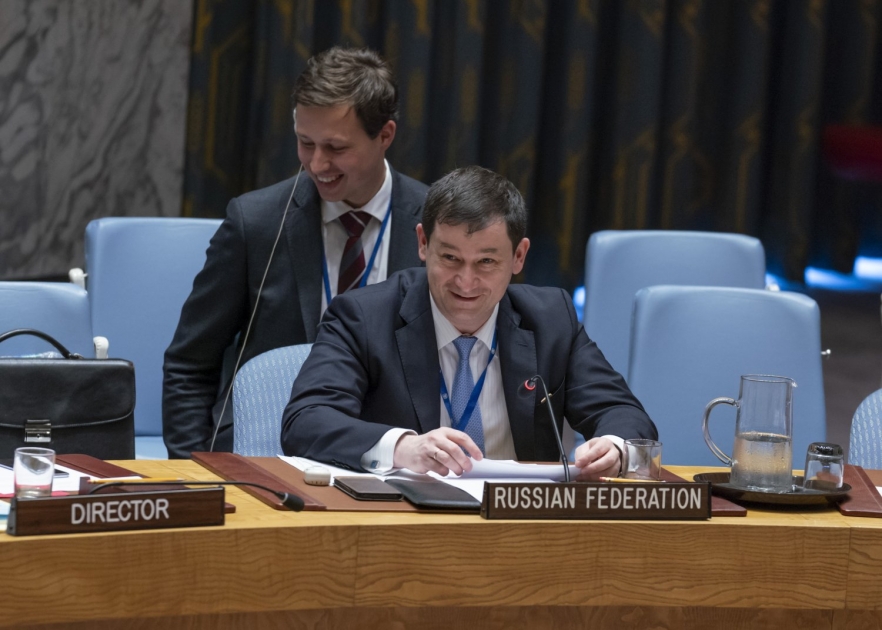Statement by Mr.Dmitry Polyansky, First Deputy Permanent Representative of the Russian Federation to the United Nations, at the Security Council on the Joint Force of the Group of Five for the Sahel
We thank Ms. Bintou Keita, Assistant Secretary-General for Peacekeeping Operations, for her very informative briefing.
We listened to the statement delivered by the Head of the Delegation of the European Union to the United Nations, Мr. Joáo Vale de Almeida, with interest. The African view of the problems of the region set out by Mr. Maman Sidikou, Permanent Secretary of the Group of Five for the Sahel (G-5 Sahel), and Ms. Fatima Kyari Mohammed, Permanent Observer of the African Union to the United Nations, deserves extremely serious attention from the member States of the Security Council.
We agree with their alarming assessments that the level of the threats to security and stability in that part of Africa is unprecedentedly high. The forces of international terrorism in the Sahel are stronger, unfortunately. They have ramped up their activity and are seeking to expand geographically. New radical groups and leaders are appearing.
We know the reasons for this. One of the most important is the collapse of Libya as a State, which came about as a result of foreign interference in its internal affairs. We believe that if the situation there is not normalized, it will be difficult to stabilize the Sahel sustainably.
We welcome the 2017 initiative of the States of the G-5 for the Sahel to create the Joint Force to combat terrorism and organized crime. A lot has been achieved during the past year on the practical front. Two successful military operations have been conducted. The completion of staffing capacity at headquarters is in its final stages and mechanisms for financing it are in place.
We expect concrete plans for continuing joint operations against the militias to be announced very soon. At the same time, we were disturbed to hear that the process of forming the G-5 Sahel units has slowed down recently.
Progress has not been made in setting up military bases and providing them with adequate quantities of weapons, which will have a serious impact on the forces’ readiness to counter the current threats. Those issues will not be resolved without ensuring stable and predictable funding for the Sahel States’ joint military structures that are being put in place in the region.
In that regard, we call on the external donors that have made respective pledges, the United Nations Multidimensional Integrated Stabilization Mission in Mali, in the framework of its mandate, and the G-5 Sahel countries to resolve these issues as quickly as possible.
We believe firmly in the importance of further coordinated steps on the part of both African States and the international community for combating extremism in the Sahel-Sahara region. Clearly this evil cannot be eradicated through purely military means. It will be important to work effectively to counter the expansion of extremist ideology, deal effectively with the acute socioeconomic problems of the countries of the region and strengthen their State institutions.
In that connection, we note the key role that the United Nations integrated strategy for the Sahel will play in tackling those tasks. Russia is considering the possibility of establishing effective cooperation with the G-5 Sahel States in addressing their core regional problems.
We are already providing military and technical assistance to a number of States in the region and helping to train military and police personnel. We will continue to contribute to strengthening the military potential of the G-5 Sahel military forces so that their Joint Force can become an effective instrument for restoring and maintaining peace in West Africa.
